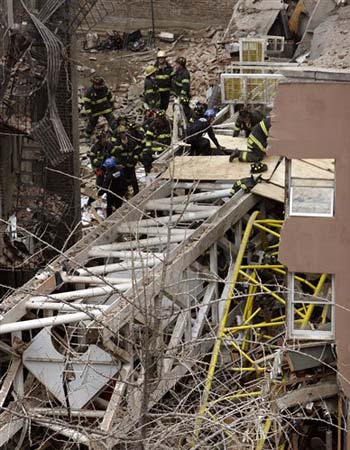The Chicago Tribune published an opinion column by John McCarron on March 7 (“Pork has gotten bad rap”) praising and defending the federal earmark system, complete with a paeon to Rep. Ray LaHood — a staunch defender of earmarks himself.
His argument is that earmarks don’t cost that much (“less than 2 percent of federal spending”) and generally go to worthy projects (like the Abraham Lincoln Presidential Library and Museum and the Laura Bush 21st Century Librarian Program). He argues that people just don’t like seeing how the sausage is made, but they still like the sausage. “The ability to bring home the bacon is the oil (not to say ‘grease’) that slides together the disparate coalitions needed to pass legislation…. It may not be pretty, but it’s how stuff gets done.”
Yet, toward the end of the article, he proposes reform, which begs the question, why would we need reform to a system that has “been around as long as the republic,” isn’t wasteful, and is generally for the public good?
I don’t know of anyone who is against federal spending on worthy projects in an open and transparent manner. What is objectionable is the secretive, unaccountable way these projects are slipped into unrelated appropriations bills. This leads to two problems. One is waste, which doesn’t seem to bother Mr. McCarron too much; he dismisses $18 billion as a pittance by comparing it to overall federal spending. This is a similar argument to those who say U. S. war spending is low because it’s only 4% of GDP and less than 1% of the total economy; it all depends on one’s perspective, I guess. The other problem, however, is priorities. According to Taxpayers for Common Sense:
Some [government] agencies reported that “implementation of these [earmarked] directives can displace agencies’ program priorities as the agencies redirect resources to comply with these directives.” A recent report by the Department of Transportation Inspector General echoed these sentiments: “earmarks may not be the most effective or efficient use of funds on programs…. Many earmarked projects considered by the agencies as low priority are being funded over higher priority, non-earmarked projects.” The same study found that nearly 99 percent of all earmarked projects “were not subject to the agencies’ review and selection processes,” bypassing the agency’s normal review process.
So McCarron writes this article ostensibly in defense of earmarks, but toward the end of the article he nevertheless admits that there is a lack of accountability and that some projects deserve a bad reputation — like the iconic “bridge to nowhere” in Alaska — and ends up proposing essentially the same reform that Taxpayers for Common Sense advocates:
No, what’s needed isn’t a ban on earmarks but a more sensible way to evaluate and prioritize projects.
Stephen Schlickman, executive director of our Regional Transportation Authority, recommends a vetting system like the Federal Transit Administration’s New Start program. Local agencies like Metra and CTA make their best case for a new rail line or station. Federal technicians evaluate and grade the applications. Congress appropriates accordingly.
Not much of a defense of earmarks, despite the rhetoric earlier in the column. All the public wants is to be able to hold their elected officials accountable and not have their tax dollars wasted. That notion has been around as long as the republic, too.

